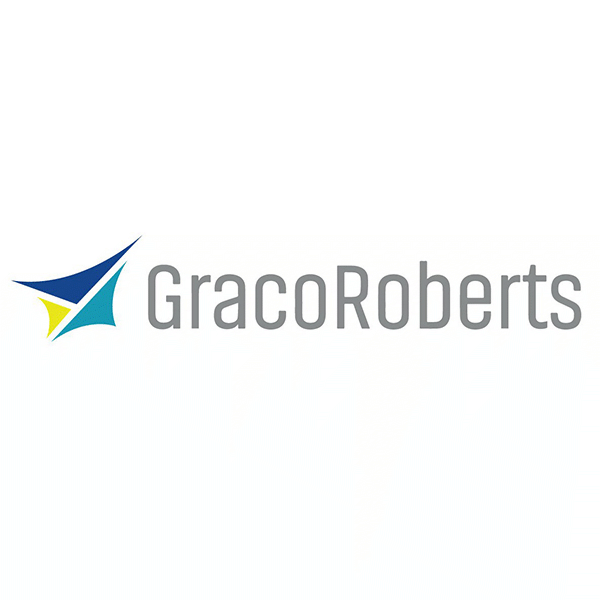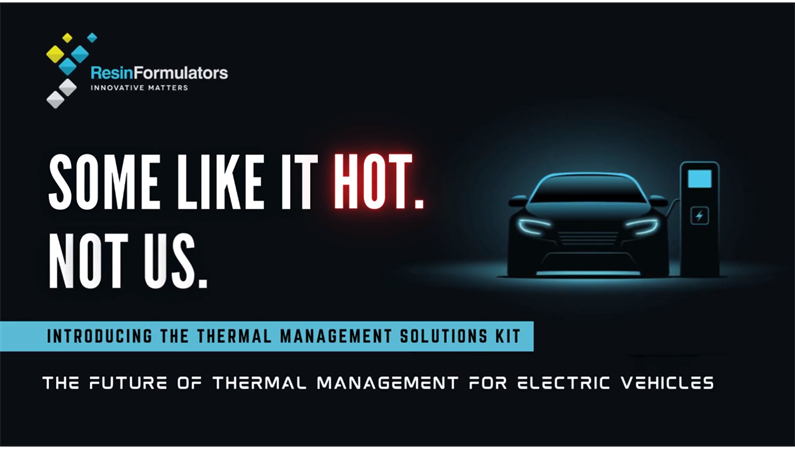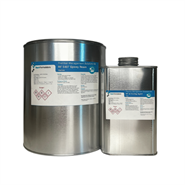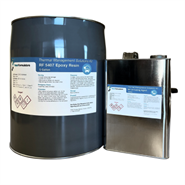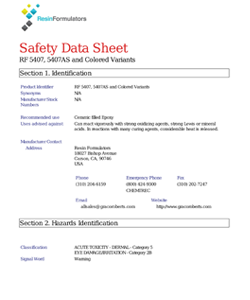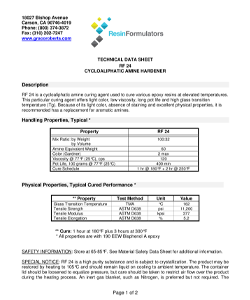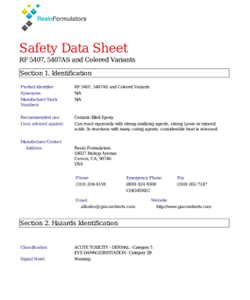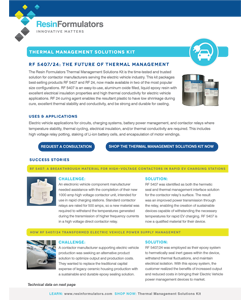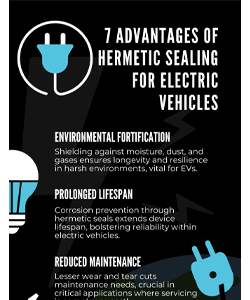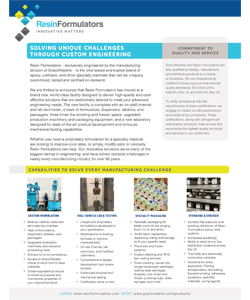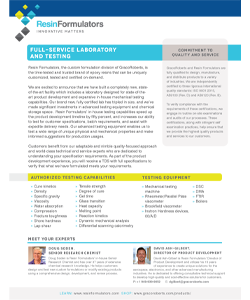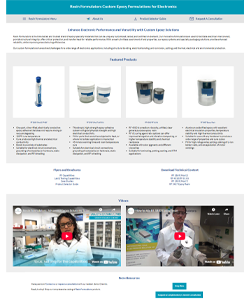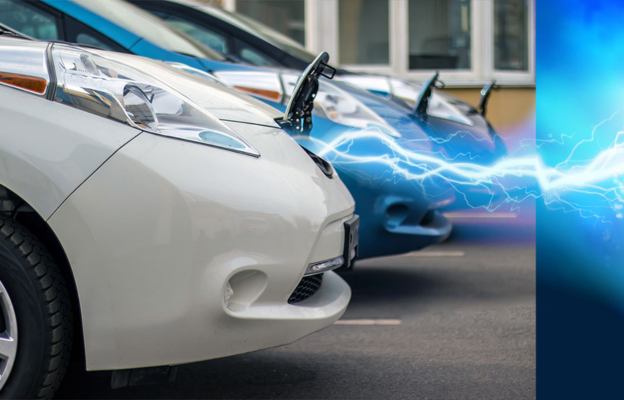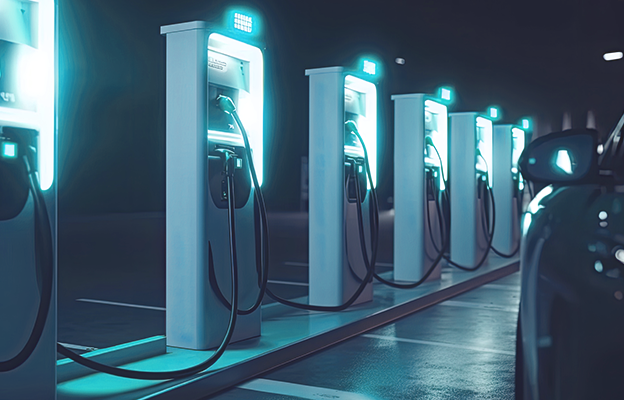- RF 5407 is an easy-to-use, aluminum oxide filled, liquid epoxy resin with excellent electrical insulation properties and high thermal conductivity for electric vehicle component applications.
- RF 24 curing agent enables the resultant plastic to have low shrinkage during cure, excellent thermal stability and conductivity, and be strong and durable for casting
How RF 5407/24 Transformed Electric Vehicle Power Supply Management
A contactor manufacturer supporting electric vehicle production was seeking an alternative product solution to optimize output and production costs. They wanted to replace the traditional capital expense of legacy ceramic housing production with a sustainable and durable epoxy sealing solution.
